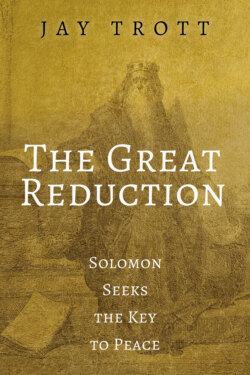Читать книгу The Great Reduction - Jay Trott - Страница 16
На сайте Литреса книга снята с продажи.
There is no remembrance of former things.
ОглавлениеAha—we caught him. Of course we remember former things! There are histories. There are whole museums.
But that is not what Solomon has in mind. First, histories are seventy-eight percent stories. We are not remembering the past so much as we are seeing someone’s interpretation of the past.
Solomon knew about Job and Abraham and Moses and Joshua and some of the things they had done. Very few people make it into written histories, however. And in the case of the vast majority of us it is literally true that there is no remembrance of former things.
If you don’t think so, try to find out the history of your own town. Try to find out what was going on in the life of the average citizen, your counterpart, two hundred years ago. You can’t. It is literally as if the vast majority of those who lived in the past had never even existed.
Consider the case of Sally Barnes, resident of the bucolic town of Sherman, Connecticut, from 1771 to 1846. Sally was once very likely a fresh-faced young highland lass, full of dreams. She may have been a great mother and neighbor; she certainly has a prime view. But who remembers her now?
More, outside of her little circle of family and friends, who even knew that she existed in her own time? Did they know about Sally in the lively town of Danbury, just twenty miles south, or in the blooming metropolis of New York, a little further down the road?
Here’s an interesting exercise: How many of us know the names of our own great-grandparents? If we do not know them, then how can we expect anyone else to know them? And if no one knows them, then isn’t Solomon simply speaking the truth when he says there is no remembrance of former things?
